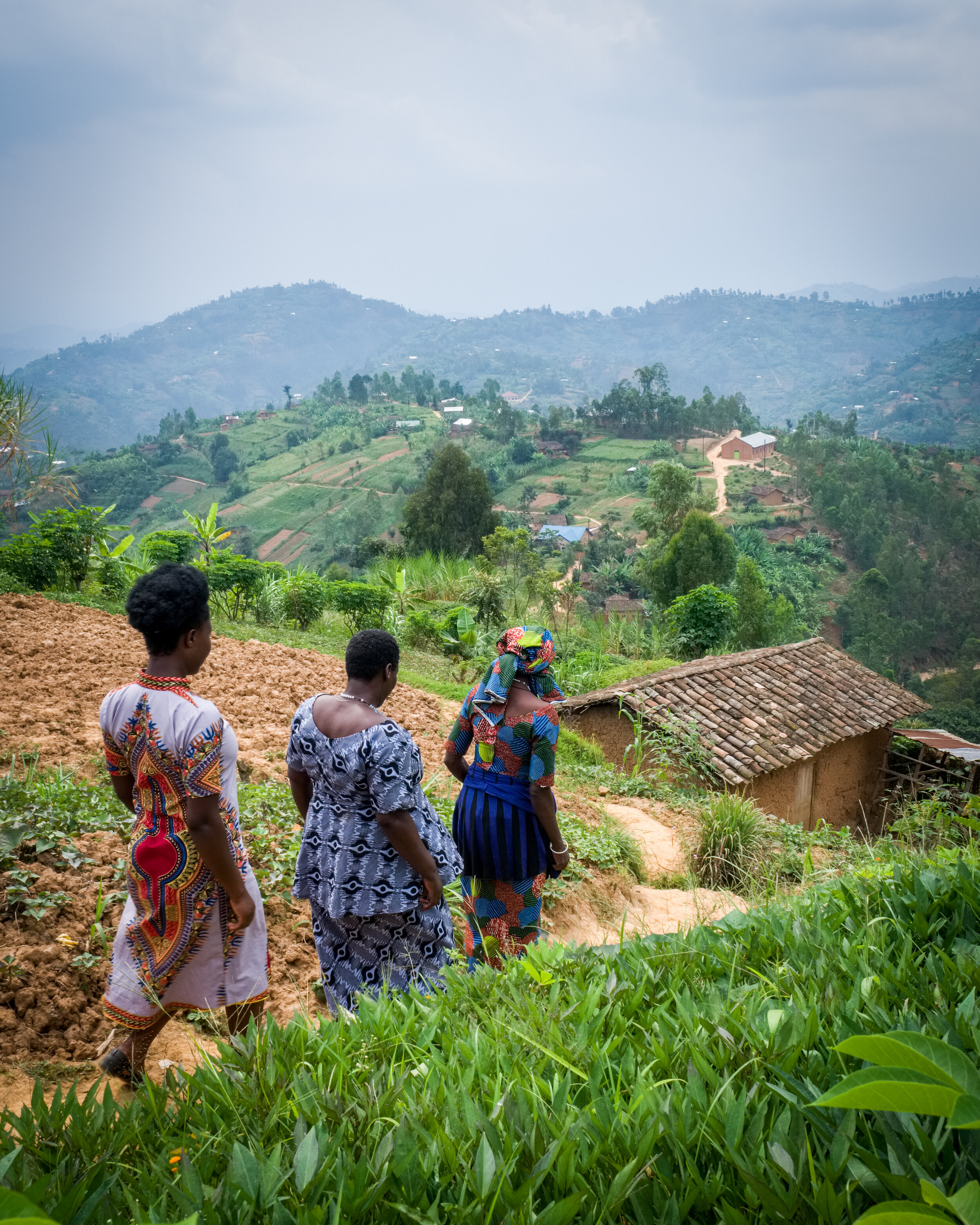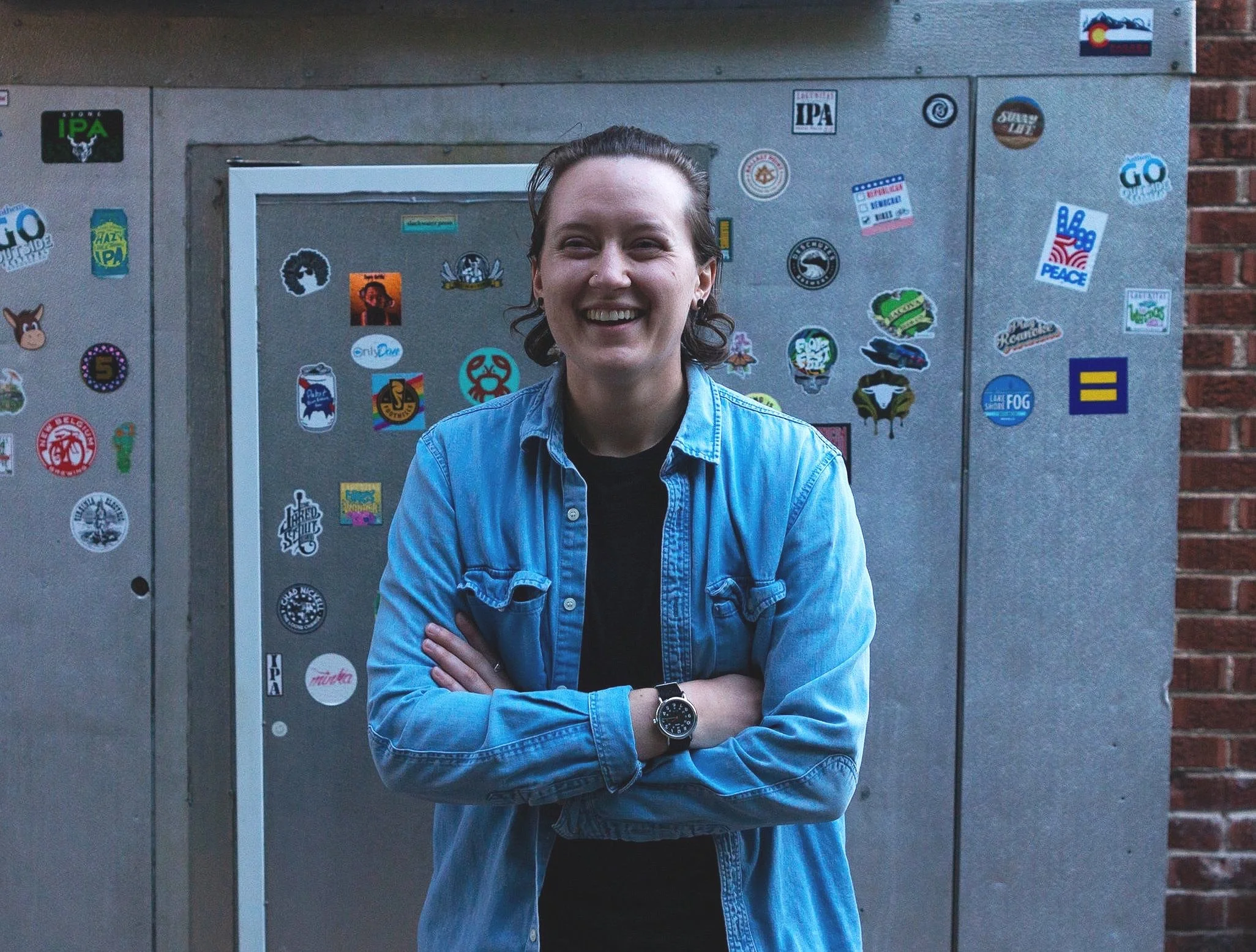Photo by Len Wiens
Words by Len Wiens
Women in the town of Musanze, Rwanda are going through a particular transformational journey focused on empowerment and ownership.
After the Rwandan genocide in 1994, an estimate of 800,000 people were killed. In the aftermath of these horrific events, the workforce in the country went through a significant shift and around 70 percent of the available jobs were led by women.
Although Rwanda has one of the smallest gender-based wage gaps in the world, ranking the country as number twenty-five for economic equality among genders, access to education is still a challenge.
Photo by Len Wiens
Education remains a luxury in Rwanda. Barriers to access good educational institutions range from the increasing costs of school to the available teachers willing to provide quality learning environments for students. Public schools as well, are usually far away from many rural areas.
However, access to institutional education is not the only venue to grow and create collaborative and participatory projects.
Surrounded by the power of the mountains, the Ubushobozi cooperative was started in 2008 with the goal of providing an alternative environment to empower girls and women in the area.
Photo by Len Wiens
A sewing machine was the first tool to promote growth amongst women in the community and forged a path to leadership. What started as two young women learning to sew, quickly became an expanded project allowing the community to join and learn. Over the next few years, more students joined the project. The students came each day from their villages to the Ubushobozi house in Musanze, where they learned sewing and English language skills. Eventually, computer skills and dance classes were added to the programming.
Photo by Len Wiens
Portrait of Aliné, 26, one of the founding members of Ubushobozi
26 year-old-Aliné, joined the project in 2008 as a founding teammate. Aliné lives in the nearby village of Gashingiro, where she helps to support her two sisters and often takes care of children who are in need of a safe place to sleep.
Young women such as Aline, took their skills and empowerment and grew with the need to expand it. Now, they have formed the Ubushobozi Cooperative. Their dedication and passion have allowed other students to provide their families with a salary and health insurance.
Patricie, also known as ‘Mama J’, is a Ubushobozi weaver and prominent community figure. Before joining the cooperative, she worked as a day labourer in neighbouring farms. Now with the support she receives from the organization, she is able to cook large meals for her neighbours, and regularly welcomes children to eat at her home.
Photo by Len Wiens
Patricie photographed in her home preparing food for local children
Local children frequently enter the programs implemented in the communities. It can be difficult for the women to envision growing in their communities, without including the passion and energy of its children.
The Ubushobozi cooperative has developed programs to ensure that financial capacity is not a limit to children’s education. Reliant on external donors willing to sponsor a child, these programs help cover the fees of going to school and they secure enrolment to boarding schools, where meals are often provided.
In Kinyarwanda, the main language in Rwanda, Ubushobozi means power and ability. But empowering women goes beyond giving them skills and access to growth. It means that they have the opportunity and the space to expand their role, both in owning the operations of the cooperative and through directing the strategy and future plans of the projects.
Photo by Len Wiens
Ownership and empowerment are not easy concepts to fully implement, but the cooperative holds regular meetings with the women to ensure that they can be agents in their own lives.
At a recent meeting, the women nominated someone to be in charge of "business development" to reach out to tour group operators, hotels and set up a stand in a market in Kigali, the capital of Rwanda. It was a big moment for the women who are increasingly proving that their passion and creativity will take their lives and Ubushobozi very far.
Photo by Len Wiens
To support Ubushobozi’s work, visit their website or online store.


















